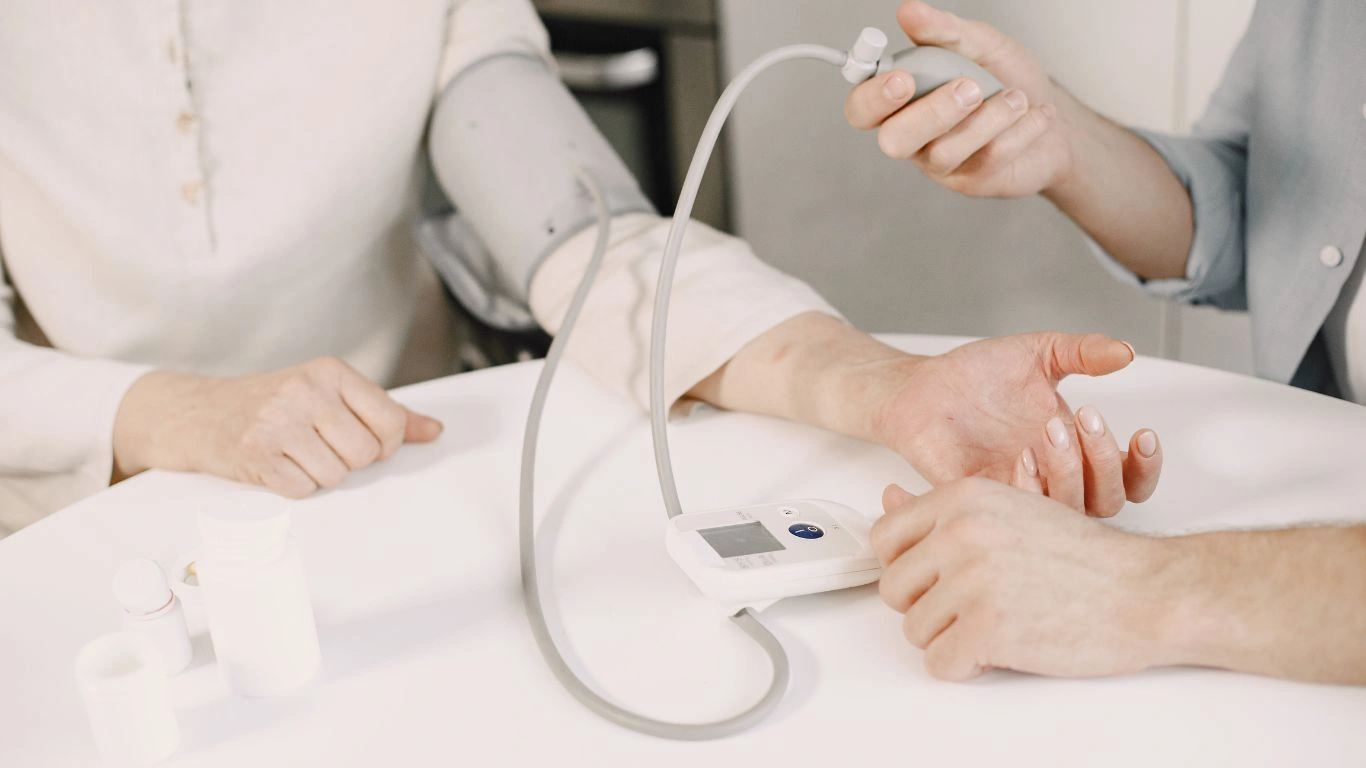Is Coconut Oil Good for Hypertension? Surprising Truths You Should Know
Ever had a patient ask you, “Hey Doc, is coconut oil good for hypertension?” If you’re anything like me, your first thought might be — “It’s complicated.” Working as an Internal Medicine Physician focusing on hypertension management, I’ve had this question pop up more times than I can count. And honestly, the answer isn’t as black-and-white as the internet makes it seem. Let’s dive deep into this steamy topic and see whether coconut oil deserves a spot in a heart-healthy kitchen or if it’s just another overhyped health trend.
Understanding the Basics: What We Know About Coconut Oil

When you think of coconut oil, maybe you imagine a beachy paradise or those gleaming jars at your local health store, promising everything from weight loss to better skin. But when it comes to hypertension — that’s a whole different ballgame.
Coconut oil is rich in saturated fats, particularly medium-chain triglycerides (MCTs). Unlike long-chain fatty acids found in most animal fats, MCTs are metabolized a bit differently. Some studies suggest MCTs can offer a quick energy source, help with weight loss, and even impact cholesterol levels. But here’s where it gets tricky — hypertension isn’t just about cholesterol or body weight. It’s a complex web involving endothelial function, inflammation, arterial stiffness, and yes, diet.
In my practice, I’ve noticed that patients who consume a lot of processed foods, regardless of the type of oil they use, tend to struggle more with blood pressure control. So context really matters here!
What Does Science Say About Coconut Oil and Hypertension?

1. The Good: Potential Benefits of Coconut Oil
Okay, let’s start with the positives because who doesn’t like a little good news?
- Antioxidant Properties: Some animal studies suggest coconut oil can have antioxidant effects, reducing oxidative stress, which is a sneaky culprit behind hypertension.
- Anti-inflammatory Effects: There’s early evidence that virgin coconut oil might have anti-inflammatory properties, possibly helping with vascular health.
- Impact on HDL Cholesterol: Coconut oil tends to boost HDL (good) cholesterol levels. A better HDL/LDL ratio might offer some protection against heart disease and, by extension, hypertension.
When some of my patients switched from processed vegetable oils to small amounts of virgin coconut oil, they reported feeling “lighter” and some even had modest improvements in their lipid panels. But — and this is a BIG but — moderation was key. And we made sure it wasn’t a free pass to slather coconut oil on everything!
2. The Not-So-Good: Potential Risks
Now, here’s the other side of the coin — and it’s important.
- High Saturated Fat Content: Coconut oil is about 90% saturated fat, more than butter. The American Heart Association still recommends limiting saturated fats for overall cardiovascular health.
- Conflicting Studies: Human studies are limited and often contradictory. Some show slight blood pressure improvements; others show no benefit — or even potential harm with high saturated fat intake.
- Individual Variability: Let’s not forget, everybody’s body responds differently. Genetic factors, lifestyle, existing health conditions — they all play a role.
Honestly, in my clinical experience, the patients who already had tight lipid control and balanced diets handled small amounts of coconut oil just fine. But for those with poorly controlled hypertension, high LDL, or metabolic syndrome? I tread a lot more cautiously.
How Coconut Oil Might Influence Blood Pressure Mechanisms

Inflammation and Oxidative Stress
One of the reasons people are curious about is coconut oil good for hypertension is the potential anti-inflammatory effect. Chronic inflammation stiffens arteries, leading to higher blood pressure. Some animal studies found that coconut oil reduced markers of inflammation and oxidative stress, at least in lab rats fed a junk food diet. But — and this is huge — translating those results to humans is a leap bigger than a football field.
Weight Management and Metabolic Health
Weight loss can definitely improve blood pressure. MCTs in coconut oil are thought to boost metabolism slightly, helping with fat burning. But let’s be real — you can’t expect to add coconut oil to a daily donut and expect magic. Weight management takes a comprehensive approach, and coconut oil can only play a small, supportive role.
Effects on Vascular Function
Some research hints that coconut oil might improve endothelial function — that’s a fancy term for how well your blood vessels relax and contract. Better endothelial health generally means better blood pressure control. However, other studies showed no significant benefit, especially when compared to oils like olive oil, which has a more established cardiovascular benefit.
Personally, I advise my patients to think of coconut oil as an ingredient — not a cure-all. It’s okay in small, thoughtful amounts but shouldn’t replace proven strategies like the DASH diet, regular exercise, and stress management. Coconut oil might be a small piece of the puzzle — but it’s not the entire picture.
Practical Tips: If You’re Considering Coconut Oil for Hypertension

Alright, so now that we’ve peeled back the layers of the “is coconut oil good for hypertension” debate, let’s talk real life — because theory is nice, but practical advice is golden.
Whenever my patients ask about adding coconut oil to their routine, I always frame it like this: it’s not about demonizing or glorifying any one food. It’s about the whole picture. Here’s what I often recommend:
- Go for Virgin or Cold-Pressed Coconut Oil: Always choose minimally processed oils. Virgin coconut oil retains more of those antioxidants we mentioned earlier.
- Mind the Portion Size: A tablespoon here and there is fine. A cup? Not so much. Moderation is your best friend.
- Mix It Up: Don’t rely solely on coconut oil. Rotate healthy fats like olive oil, avocado oil, and flaxseed oil to get a broader spectrum of benefits.
- Consider the Whole Diet: Swapping out oils isn’t going to fix a blood pressure issue if the rest of the diet is ultra-processed or salt-heavy.
- Listen to Your Body: Some people feel great using coconut oil. Others might notice their cholesterol creeping up. Personalization matters.
One of my patients, Mark, was the perfect example. He loved the idea of “natural” everything and started loading coconut oil into smoothies, coffee, even salad dressings. Fast forward three months — his LDL cholesterol shot up by 20 points. We had to recalibrate his approach. Now, he uses a little coconut oil for cooking once or twice a week and sticks to olive oil most days. His blood pressure — and his cholesterol — thanked him for it!
Comparing Coconut Oil to Other Heart-Healthy Oils

Now, if you’re serious about managing hypertension, you can’t just look at coconut oil in a vacuum. Let’s stack it up against some other oils often recommended for heart health:
1. Olive Oil
Olive oil, especially extra virgin, is the gold standard. Rich in monounsaturated fats and antioxidants, it’s a centerpiece of the Mediterranean diet — which has loads of solid data backing it for hypertension control. Honestly, I lean heavily toward recommending olive oil for most of my hypertensive patients, simply because the evidence is just so strong.
2. Avocado Oil
Another great option, avocado oil is high in monounsaturated fats, has a high smoke point, and boasts anti-inflammatory properties. It’s mild-tasting, too, which patients tend to love.
3. Flaxseed Oil
Flaxseed oil is a fantastic source of plant-based omega-3s (ALA). It’s not ideal for cooking at high heat, but it’s awesome in dressings or smoothies. For patients needing more omega-3s without turning to fish, flaxseed oil is a winner.
So, how does coconut oil stack up? Well, it holds its own in some areas (like boosting HDL), but it doesn’t beat the heart-healthy champs when it comes to hypertension specifically. Still, it can fit into a balanced diet — just not as the main star of the show.
When Coconut Oil Might Not Be the Best Choice

Now, as much as I like to keep things optimistic, it’s important to talk about when coconut oil might actually hurt more than help.
- Existing Cardiovascular Disease: If a patient already has heart disease or a strong family history, I usually recommend limiting coconut oil intake and focusing on proven heart-healthy fats.
- High LDL Cholesterol: Patients whose LDL levels are creeping up despite lifestyle efforts should be cautious with coconut oil. Saturated fats are still saturated fats, no matter how “natural” they seem.
- Poor Diet Quality Overall: If coconut oil is being used as a band-aid over a highly processed, salty, low-fiber diet, it’s just putting lipstick on a pig. The foundation has to be there first.
During my years managing hypertension, I’ve learned the hard way that patients sometimes cling to these “superfoods” hoping for a miracle fix. Coconut oil isn’t that — and it’s crucial we set expectations realistically. That’s part of building real trust with patients, isn’t it?
How to Talk to Your Doctor About Coconut Oil and Hypertension
If you’re curious about trying coconut oil as part of your blood pressure management plan — or if you’re a healthcare provider counseling a patient — open, honest communication is key.
Here are a few questions to consider bringing up at your next appointment:
- Is my current cholesterol profile safe for adding more saturated fats?
- How does coconut oil fit into my overall eating pattern?
- Should I be monitoring my blood pressure more closely if I introduce coconut oil?
- Are there better alternatives that might offer the same or better benefits?
As a physician, I truly appreciate when patients come to me ready to discuss these nuances. It means they’re engaged in their health — and it gives us a chance to create a game plan together that’s tailored, practical, and realistic.
Bottom line? Coconut oil isn’t “bad,” but it’s not some miracle cure for hypertension either. Context, moderation, and personalization are everything.
Smart Ways to Include Coconut Oil in a Blood Pressure-Friendly Diet

So you’re probably wondering — if coconut oil can have a place in a balanced approach, how exactly should you use it? I get this question all the time during clinic visits. Patients want to know practical, simple swaps they can actually stick with. And honestly, small tweaks really add up over time!
Here are a few ideas I often share:
- Light Cooking: Use a teaspoon of virgin coconut oil when sautéing vegetables. It gives a nice flavor without overdoing the fat load.
- Blend Into Smoothies: Adding half a teaspoon into your morning smoothie can boost satiety and add a subtle tropical taste.
- Baking Substitute: Swap it 1:1 for butter in baking recipes — but again, keep portions in mind!
- Homemade Dressings: Blend coconut oil with apple cider vinegar, mustard, and a splash of honey for a zesty homemade dressing.
One patient, Lisa, loved baking but was worried about using butter in every recipe. We experimented with using coconut oil in some of her muffin and bread recipes. Not only did she enjoy the flavor twist, but she also felt more empowered about her food choices overall. It’s those little wins that often build the most momentum!
Is Coconut Oil Good for Hypertension in the Long Run?

If you take away one message today, let it be this: managing hypertension is a marathon, not a sprint. One food choice won’t make or break your blood pressure. It’s the long-term patterns that matter most.
From everything we’ve unpacked, coconut oil is neither a villain nor a miracle cure. In small amounts, especially when used wisely within a whole-foods-based diet, it can certainly fit into a hypertension-friendly lifestyle. But would I ever tell a patient to go chug coconut oil to lower their blood pressure? Definitely not.
Here’s a quick comparison to put it into perspective:
- Olive oil: Decades of human studies show clear heart benefits.
- Avocado oil: Excellent for heart health and blood pressure control.
- Flaxseed oil: Plant-based omega-3 powerhouse.
- Coconut oil: Some benefits, but needs to be used carefully and thoughtfully.
That’s why when my patients ask, “Doc, is coconut oil good for hypertension?” my honest answer is usually, “It can be — but it depends on how you use it and what the rest of your diet looks like.”
Final Thoughts: Putting It All Together
When it comes to managing hypertension, no single ingredient holds all the power. Success lies in building a lifestyle filled with smart, consistent choices — from the oils you cook with to the amount of leafy greens on your plate to the minutes you carve out for stress-reducing walks.
Coconut oil can absolutely have a place at the table — but it shouldn’t push aside the fundamentals like:
- Plenty of colorful fruits and veggies
- Whole grains
- Lean proteins
- Low sodium intake
- Regular physical activity
- Good sleep hygiene
And let’s not forget — mental health, community support, and joyful movement matter just as much as food does. I always encourage my patients to think bigger than the scale or the blood pressure cuff. True health feels good inside and out.
So if you’re thinking about adding a little coconut oil into your life, go for it — just do it mindfully, joyfully, and as part of a much bigger picture.
References
- National Institutes of Health
- Health.com
- Centers for Disease Control and Prevention
- American Heart Association
Disclaimer
This article is for informational purposes only and is not a substitute for professional medical advice, diagnosis, or treatment. Always consult your healthcare provider before making changes to your diet, exercise, or medication regimen — especially if you have a chronic health condition like hypertension. As an Internal Medicine Physician, I share these insights based on current evidence and my clinical experience, but individual cases may vary.

Dr. Gwenna Aazee is a board-certified Internal Medicine Physician with a special focus on hypertension management, chronic disease prevention, and patient education. With years of experience in both clinical practice and medical writing, she’s passionate about turning evidence-based medicine into accessible, actionable advice. Through her work at Healthusias.com, Dr. Aazee empowers readers to take charge of their health with confidence and clarity. Off the clock, she enjoys deep dives into nutrition research, long walks with her rescue pup, and simplifying medical jargon one article at a time.







